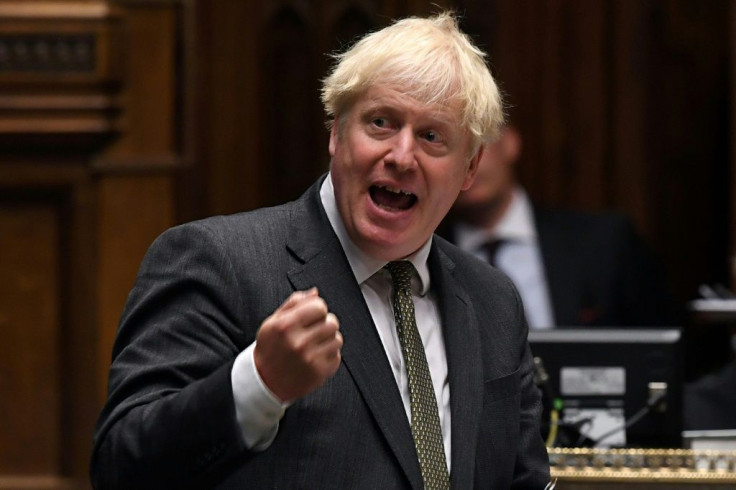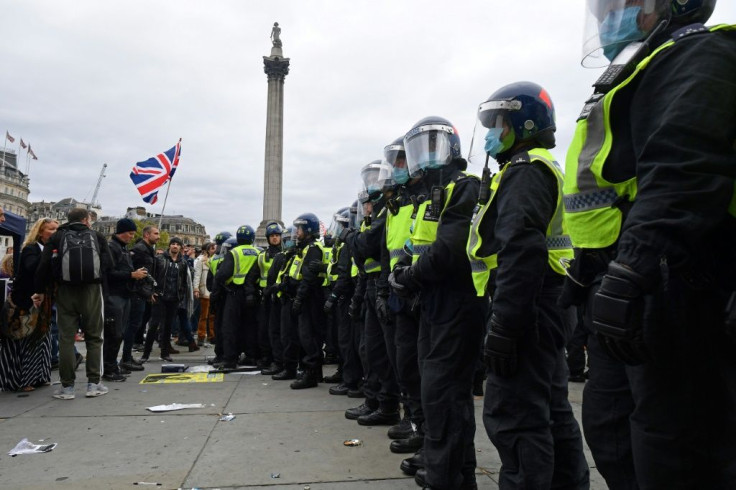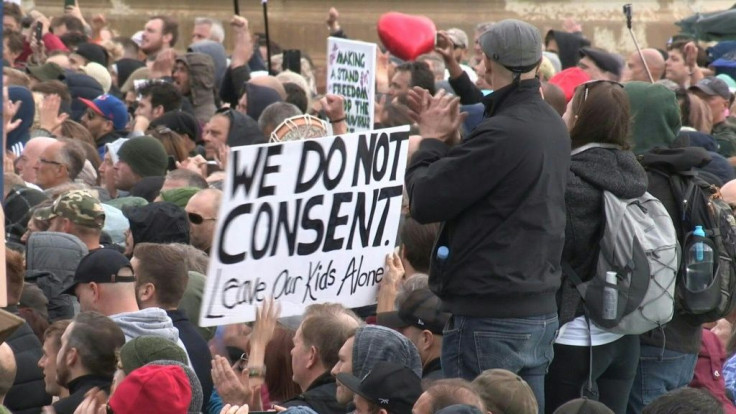'Disorder, Debacle, Rebellion': Backers Turn On Britain's PM
Boris Johnson, called dejected and dogmatic even by his partisans, is enduring a torrid time in his tumultuous premiership, and worse may lie ahead.
The coronavirus pandemic is testing all world leaders. But Britain has suffered more than any other country in Europe, and now the prime minister faces a revolt by Conservative colleagues who accuse him of governing by diktat.
If the Covid-19 crisis has dictated the need for emergency policies on the hoof, the government has had plenty of time to prepare for life outside the European Union.
But there too, an air of mutiny hangs over parliament after Johnson picked a Brexit fight with Brussels that puts Britain on the wrong side of international law.
The gloomy atmosphere is a sea change from last year, when Johnson displayed his barnstorming campaign skills to first win the Conservative leadership and then a general election.

"Conservative MPs didn't elect Boris Johnson as their leader because they thought he'd make a great prime minister," Tim Bale, professor of politics at Queen Mary University of London, told AFP.
"They elected him as their leader because they were desperate to win an election," he said. "There's probably always a hope that someone will grow into the job. There's some alarm that hasn't happened."
The main opposition Labour Party is resurgent in opinion polls under new leader Keir Starmer, taking the lead for the first time since Johnson took over last July, according to an Opinium survey released on Sunday.
But it is in the ranks of his own Conservative party that Johnson faces the biggest test.

His finance minister, Rishi Sunak, is winning plaudits for a series of big-spending coronavirus economic packages.
In the true-blue Daily Telegraph, commentator Katy Balls wrote that Sunak is "being talked up as a prime minister in waiting", although she noted he may yet come a cropper when it comes to balancing the books as mass unemployment returns.
In announcing his latest package on Thursday, the chancellor of the exchequer said Britons must learn to "live without fear" -- delighting Tory sceptics who want Johnson to prioritise the survival of businesses over more stringent lockdowns.
The prime minister's 80-seat majority should provide a comfortable cushion, but 40-60 Tories are said to be plotting a revolt when the government's emergency coronavirus powers come up for renewal this week.

Johnson himself nearly died of Covid-19 in April. In raising doubts about his political acumen of late, some Conservatives have openly aired concerns about the long-term effects on his health.
"Whatever the cause, he has become doctrinaire and resistant to debate," argued Daily Mail columnist Stephen Glover.
For the Spectator, a news magazine that Johnson once edited, the premier is presiding over "disorder, debacle, rebellion, U-turn and confusion".
"He's no longer fit to be prime minister and should step down as soon as he's got Brexit done," wrote Spectator contributor Toby Young, normally a fervent backer of Johnson.
Getting Brexit done with an "oven-ready" EU divorce deal was the promise Johnson made to the electorate last December, five months after he succeeded Theresa May as prime minister.
May is now lined up among the rebels opposed to the government's internal market bill, which is meant to protect trade within the UK after Brexit -- at the cost of violating treaty promises made to the EU.
The government looks to have bought off some of the malcontents by amending the legislation ahead of a final Commons vote this week.
But the bill would still give parliament the right to breach the EU Withdrawal Agreement, and the 27-nation bloc remains deeply unhappy.
Both sides are hoping to strike a new trade agreement by a mid-October summit, but the prospect of a chaotic "no deal" split looms in December when a post-Brexit transition period ends.
Prior to the crunch EU summit, Johnson will preside over the Conservatives' annual conference on October 3-6, normally an occasion where his Churchillian rhetoric is lapped up by the party faithful.
But the conference is all-virtual this year, thanks to the pandemic, depriving him of the chance to rediscover his normal ebullience.
"But it may have more to do with the fact that he's in a job in which he appears to be quite badly out of his depth," professor Bale said.
© Copyright AFP 2024. All rights reserved.





















